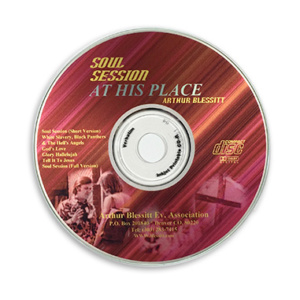Chapter 10
Handling
Doubts
and
Questions
Sanctify the Lord God in your hearts, and
always be ready to give a defense to everyone
who asks you a reason for the hope
that is in you.
—1 Peter 3:15
A pastor friend of mine would ask me to preach at his church from time to time. And every time I showed up at his church, I could see that more atheists and agnostics and out-and-out sinners had gotten saved and were worshiping Jesus as part of this church. So one time I asked my friend, “How do you lead so many atheists to Jesus?” He said, “I send out our new converts to the homes of the worst people in town.” “Not your deacons? Not your elders? Not the leaders of the church?” “Oh no. They would try to convince the unbelievers about what they need to do. I send out new converts, and the only thing they know is Jesus. So they get to the people’s houses and the unbelievers will start saying, ‘Well, I don’t believe in God. I believe in this and I believe in that.’ And the new followers of Jesus will say, ‘I don’t know anything about that. All I know is that two weeks ago Jesus convicted me of my sin, and He saved me and now I’m a new man.’ The unbelievers will start crying, and their tears just wash them into the kingdom of God.”
I tell this story to make the point that any follower of Jesus can share Him effectively with others, regardless of what issues the others may raise. You don’t have to be an expert in any area of belief, and you don’t have to fear anyone’s questions, because you’re going to keep the subject focused on Jesus anyway. As a follower of His, you are fully qualified to represent Him. All you have to do is tell what you know about Him.
Witnesses, Not Debaters
One thing that scares many people off from sharing Jesus with others is their fear that someone will raise a question or objection that they don’t know how to deal with. To that, as my Aussie friends say, no worries! It’s true that the apostle Peter urged, “Sanctify the Lord God in your hearts, and always be ready to give a defense to everyone who asks you a reason for the hope that is in you” (1 Peter 3:15).
And many take that to mean that they have to study up so that they know answers to all kinds of difficult questions. But look at the verse more carefully. It simply says that we should be spiritually right with God (the Lord sanctified in our hearts) and be prepared to tell people our story about why we believe in the Lord (the hope that is in us).
We’re not in the answering-questions business;
we’re in the sharing-Jesus business.
We may or may not have an answer to someone’s question. But when we don’t, that’s all right, because we don’t need to. We’re not in the answering-questions business; we’re in the sharing-Jesus business. Whatever doubts or questions someone may have, our goal is to direct that person back to Jesus as swiftly as possible.
He is the answer to all questions.
Now, I know that the normal rules of being a good listener tell us that we should let people say whatever they want. But I have found that this is not necessarily the best way to share Jesus. Sometimes people want to divert the conversation. When we start talking about Jesus, they will ask us where Cain got his wife or express their views on abortion or tell us why they got mad and left the church twenty years ago. But we don’t have to let the other person dictate the course of the conversation.
Many times, when someone has gone off on a tangent, I will say, “I know what you’re saying there, but let me ask you this. What about Jesus? Do you think He would make a difference in that situation?” In other words, I take back control of the conversation and put the focus squarely back on Jesus.
When Jesus walked this earth, people came to Him with all kinds of questions, trying to trap Him instead of really searching for the truth they needed to embrace. Did Jesus let them get away with that? Certainly not. He said what He wanted to say—what needed to be said in each situation. In His name, we can do the same. And really, it’s the compassionate thing to do for the other persons, since we’re trying to keep them on the path to the solution for their main problem: sin.
The apostle Paul once wrote, “I determined not to know anything among you except Jesus Christ and Him crucified” (1 Corinthians 2:2). That should be our intention as well. Even if we think we have a great comeback for somebody’s objection, we should not necessarily trot it out. We are called to be witnesses to Christ, not debaters.
In case taking control of a conversation should seem hard to you, let me remind you that we are to be sharing Jesus in the power of the Spirit. That applies to responding to people’s doubts and questions as well as to every other part of the sharing. The Holy Spirit will lead us so that we know what to say in response to someone’s questions and know how to introduce that person to Jesus.
People sometimes talk about me as being a great “soul winner.” I’m not. As a matter of fact, I couldn’t do anything to change anyone’s heart if I tried. I just keep offering Jesus, and He does it all. I’m merely around to play a helping role and to watch what God is doing and give Him praise. Glory, hallelujah!
My advice to you is to do the same. Stay where the anointing is. Stick with Jesus.
Ready Responses
As we are sharing Jesus with people, inevitably some will express doubts or raise questions. I would like to share with you some of these that I have found to be most common, along with ready responses for each.
• “I’m not ready.” “Today, if you will hear His voice, do
not harden your hearts” (Hebrews 3:15).
“I’m not ready” is an objection that we simply cannot accept. When someone says that to me, I respond, “You may not be willing, but you are ready. You need Jesus, and He’s calling out to you today. There’s no reason why you cannot receive Him right now.”
When that’s not enough to encourage someone to pray for salvation, I try another tact, I’ll ask, “Do you feel good right now?”
“Yes, I feel fine.”
“Do you think you’re sick?”
“No, I said I feel fine. There’s nothing wrong with me.” “Okay, now let me ask you something else. Imagine that you went to the doctor today for a checkup and, after running his tests, he said, ‘You’ve got a disease and you’re about to die.’ How would you feel then?”
“Well, I’d be concerned.”
“Right. Because you got the doctor’s report that you’ve got a real problem.
People can become angry at God for any number of reasons. They have had disappointments, loss, or pain, and they blame God for it. We, by sharing Jesus with them, unfortunately wind up taking some of the heat of their anger. But they’re really not angry with us—they’re angry with God. That’s why we can’t take it personally or get offended or become angry in return. We must respond to a harsh word with a soft answer.
When someone is really angry, it takes a judgment call on our part as to whether we ought to even continue trying to share Jesus. One time the citizens of Nazareth got so angry at Jesus that they took Him to a cliff, intending to toss Him over it and kill Him. What did Jesus do? “Passing through the midst of them, He went His way” (Luke 4:30). Sometimes we must do the same.
• “I don’t like religion.” “If anyone among you thinks he
is religious, and does not bridle his tongue but
deceives his own heart, this one’s religion is useless”
(James 1:26).
I have sympathy for people who say they don’t like religion—I don’t like it myself. Wars have been fought over religion. Terrorist acts are justified with religion.Injustice and oppression of every type are commonly based in religion. Who wants that?
I’m there to share with them about a person—
Jesus…
As James 1 says, religion is useless when the heart is not right. So when people say they don’t like religion, I tell them that I agree with them and that I’m not peddling religion. I’m there to share with them about a person—Jesus—and not try to induct them into some religious system.
I find that people respond much better to Jesus than they do to religion. And well they should. And so we need to focus, not on the institution of Christianity, but on Christ as the One who can change hearts and lives.
• “I don’t have enough faith.” “If you have faith as a
mustard seed, you will say to this mountain, ‘Move
from here to there,’ and it will move; and nothing will
be impossible for you” (Matthew 17:20).
I’m not sure why people say, “I don’t have enough faith,” but I hear it from time to time. Maybe it comes from genuine humility—and that’s not a bad thing. But when someone says this, we want to prevent it from becoming an excuse to delay putting trust in Jesus.
Keeping in mind Jesus’ words about faith as a mustard seed, I will often say to a person, “Do you have even a tiny bit of faith?”
She might say, “Well, yeah, I have a tiny bit. But compared to people like you who have a big faith, I hardly have any.”
“Great! That’s all you need.”
“Really?”
That’s when I stick out my hand and say, “Now, I want you to imagine that this is the hand of Jesus and you’re saying to Him, ‘I only have a tiny grain of faith in You, Jesus, but I’m putting it in Your hand.’ ”
I encourage the other person to pretend to put a small kernel of grain into my palm. (Sometimes she will start crying right then!) Then I say, “The Bible tells us that faith is a gift of God. So let’s ask God to work a miracle and grow your tiny grain into a great big faith.” And I pray, ‘Lord, take this little mustard seed of faith and multiply it so that this dear woman can be saved.’ ”
Often, at that point, the other person’s heart has softened and she has begun to hope as she never has before. Then I can immediately lead her into a prayer asking Jesus into her heart.
The key here, as with every other expressed doubt or question, is to deal with the objection simply and honestly while trying to move the conversation as quickly as possible back to Jesus and His offer of new life.
Remembering that it’s all about Jesus, we try to introduce people to the Savior, who can then set about dealing with whatever problems or concerns they might have.
___
Questions to Consider
• What doubts or questions about Jesus have others
raised with you in the past? How have you
handled them?
• What could you change in your approach to
more effectively keep the focus of a discussion
on Jesus?









